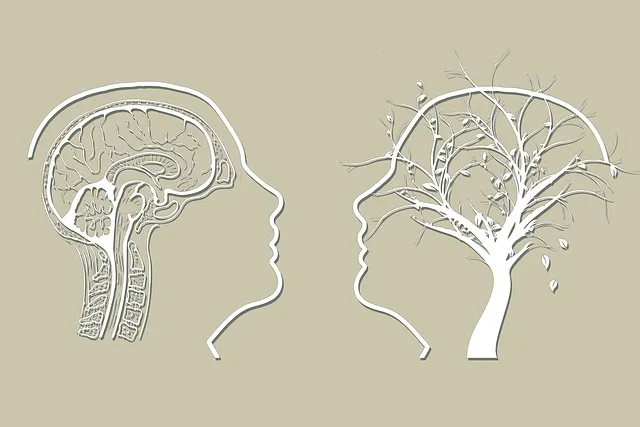Kaiser Permanente's innovative mental health services in Parker utilize the RFM framework (Resources, Flexibility, Mastery) to build resilience among healthcare professionals, improving job satisfaction and patient care. Their Community Outreach Program engages local communities, offering diverse initiatives for proactive mental wellness. Inspired by this, Parker's Method combines physical exercises, mindfulness, and cognitive reframing to enhance well-being. Integrating resilience-focused mental health exercises (RFM) into daily routines can significantly improve mental fortitude against stress, with proven benefits in clinical settings.
Resilience is a powerful tool for navigating life’s challenges. RFM (Recovery, Flexibility, and Mastery), a framework rooted in cognitive behavioral therapy, offers a structured approach to building mental resilience. This article explores the concept of RFM through the lens of Kaiser Permanente’s comprehensive mental health support and Parker’s Method, practical exercises designed to foster adaptability. We’ll delve into actionable strategies for integrating RFM into daily life, highlighting its numerous benefits and real-world applications, as demonstrated by Parker’s success in enhancing mental well-being.
- Understanding RFM: A Framework for Mental Resilience
- Kaiser Permanente's Approach to Mental Health Support
- Parker's Method: Resilience-Building Exercises in Action
- Integrating RFM into Daily Life: Practical Strategies
- Benefits and Real-World Applications of RFM Techniques
Understanding RFM: A Framework for Mental Resilience

Resilience is a key component of mental well-being, enabling individuals to cope with stress, adversity, and challenging life events. The RFM (Resource, Flexibility, Mastery) framework offers a structured approach to enhancing resilience, focusing on three primary components: resources, flexibility, and mastery. This model has been widely adopted in various contexts, including the healthcare industry, where it has proven effective in promoting mental health and well-being among professionals.
At Kaiser Permanente mental health Parker, we recognize that building resilience is crucial for both individuals and organizations. By implementing RFM principles, our professionals can enhance their ability to navigate through difficult situations, manage stress effectively, and improve overall job satisfaction. This approach not only benefits the professionals but also positively impacts patient care, as resilient healthcare providers are better equipped to offer anxiety relief and support to those they serve. Additionally, it aids in risk assessment for mental health professionals, enabling them to develop robust risk management planning strategies, thereby ensuring a safer and healthier work environment.
Kaiser Permanente's Approach to Mental Health Support

Kaiser Permanente, a renowned healthcare organization, has been at the forefront of integrating mental health support into its comprehensive medical services. Located in Parker, their approach prioritizes community engagement and holistic well-being. They implement the Community Outreach Program, fostering connections with local communities to address mental health challenges proactively. Through this program, they organize various initiatives that promote self-awareness exercises and stress reduction methods, aiming to build resilience among individuals.
By combining medical expertise with community-centric strategies, Kaiser Permanente ensures that mental health services are accessible and tailored to diverse needs. This inclusive approach not only enhances the overall well-being of residents in Parker but also sets a benchmark for effective mental healthcare delivery across different communities.
Parker's Method: Resilience-Building Exercises in Action

Parker’s Method offers a unique approach to resilience-building exercises, drawing inspiration from the expertise of Kaiser Permanente mental health professionals. This method integrates various techniques designed to enhance individuals’ ability to navigate life’s challenges and promote overall well-being. Through a series of structured activities, participants learn to manage stress, cultivate positive thinking, and develop coping strategies that can prevent or mitigate conditions like depression.
The effectiveness of Parker’s Method lies in its holistic nature, combining physical exercises, mindfulness practices, and cognitive reframing techniques. This comprehensive design aligns with the growing emphasis on Mental Health Education Programs. By fostering resilience, these exercises empower individuals to proactively address mental health concerns, thereby reducing the risk factors associated with common mental health disorders.
Integrating RFM into Daily Life: Practical Strategies

Integrating RFM (Resilience, Flexibility, and Mindfulness) into your daily life can be a game-changer for mental well-being, as highlighted by Kaiser Permanente’s mental health programs in Parker. Here are some practical strategies to get started:
Start with small, achievable goals. Incorporate brief mindfulness exercises into your morning routine, such as a few minutes of deep breathing or simple meditation. Over time, expand these practices to include regular physical activity and stress management techniques. A structured Self-Care Routine Development for Better Mental Health can help you stay focused and consistent. For instance, designate specific times for relaxation and reflection, ensuring these activities become an integral part of your day. Engaging in mental health education programs designed to teach coping skills development will empower you to navigate challenges more effectively.
Benefits and Real-World Applications of RFM Techniques

Resilience-focused Mental Health Exercises (RFM) offer a plethora of benefits that can significantly enhance individuals’ well-being and overall quality of life. These evidence-based techniques, developed by organizations like Kaiser Permanente, prioritize building mental fortitude to cope with stress, adversity, and challenging life events. By incorporating RFM into their practice, healthcare providers, particularly those in the Parker community, can empower patients to develop a robust psychological shield against mental health disorders such as depression.
The real-world applications of RFM are vast. In clinical settings, these exercises have proven effective in treating trauma, anxiety, and stress-related conditions. They encourage individuals to cultivate positive coping mechanisms, fostering a sense of control over their emotions and circumstances. Moreover, RFM can be integrated into Healthcare Provider Cultural Competency Training programs to enhance the understanding and sensitivity of medical professionals when addressing mental health concerns among diverse patient populations. This holistic approach not only improves patient outcomes but also contributes to the prevention of depression and other mental health issues in communities across the nation.
Resilience is a powerful tool for navigating life’s challenges, and the RFM (Kaiser Permanente mental health) framework offers a structured approach to building this mental strength. As demonstrated by Parker’s method, resilience-building exercises can be integrated into daily routines, providing practical strategies for enhancing well-being. By adopting these techniques, individuals can improve their ability to cope with stress, boost happiness, and achieve better mental health outcomes, as evidenced by Kaiser Permanente’s successful support programs.






